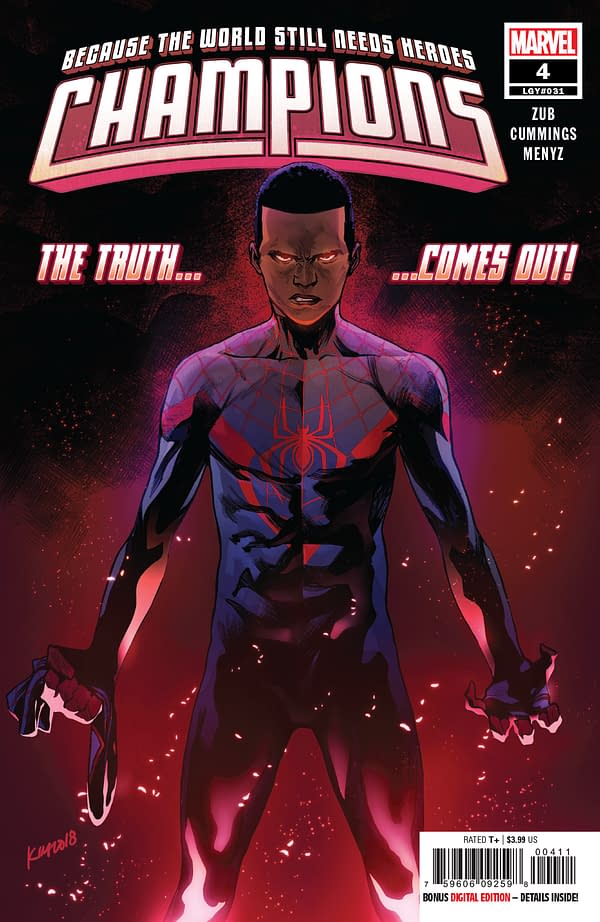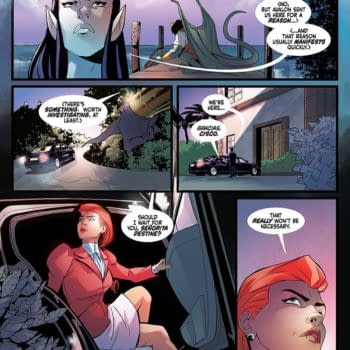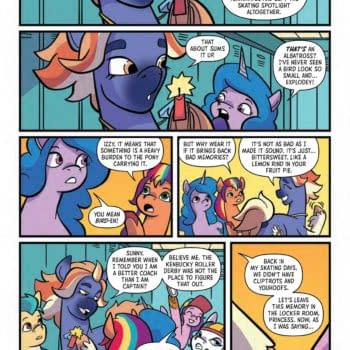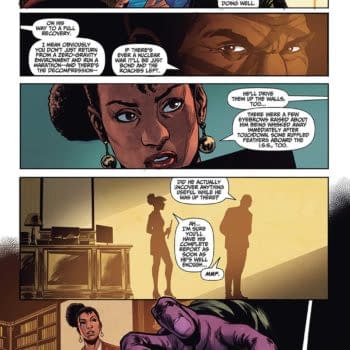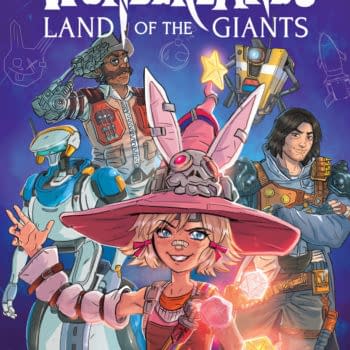Posted in: Comics | Tagged: Champions, jim zub, marvel, piracy
Jim Zub Says Thousands Pirated Champions #4 on Release Day, Asks for Reader Support
Comic book writer Jim Zub took to Twitter Wednesday to complain about comics piracy, asking readers who enjoy books like his Champions, the fourth of issue of which went on sale to day, to support the book by actually paying for it, lest it not be around to "deliver on its potential." In his Tweet, posted just before Noon Eastern, Zub claimed that thousands had already downloaded the just-released comic from piracy sites, though he did not name the sites in question (understandably). We're not experts on piracy or anything, but we checked one popular torrent site, which saw two issues of the comic with a combined total of just under 200 seeders or leechers. A popular site that allows reading the comic in browsers didn't list download numbers, but did show thirty-three comments on the issue. The hub page for the series, for which four issues are available, boasts of over 100,000 pageviews.
Zub went on to note that, while Champions is "not in cancellation territory yet," "industry-wide monthly sales aren't good right now. It's a problem." Comichron estimates direct market single-issue sales of February's issue of Champions at over 18,000 copies. The series was ranked #92 in unit sales in Diamond's top 100 comics. It's unclear exactly how much money piracy costs the comic book industry each year, as those statistics are not available. The U.S. TV and Film industry is estimated to be worth $830 billion by 2022 by PriceWaterhouseCoopers, while Digital TV Research projects that piracy will cost those industries $52 billion that year, or 15% of revenue. If those percentages are similar for comics, downloads numbering in the thousands for a comic like Champions would be expected. A 2016 study of Japan's Manga industry by Tatsuo Tanaka for the Institute for Economic Studies at Keio University in Japan found that piracy hurts the sales of ongoing comics, though it can boost the sales of collected editions of completed comics by generating interest.
Zub offered some alternatives for readers who don't buy print single issues, including purchasing the comic digitally or pre-ordering the trade paperback, which is due to hit stores in July. That comic can be pre-ordered from your local comic shop, or from bookstores or online retailers like Amazon. For readers who might reasonably balk at the high price of single-issue comics, with single issues that usually comprise one-fifth of a complete story that will later be collected in trade paperback usually priced at $3.99, pre-order services like DCBS can cut costs by as much as 40 or 50 percent. Additionally, Marvel Unlimited subscribers will be able to read the issue when it's released on that service, which usually happens about six months after they're originally released for sale. In the meantime, you can read thousands of classic comics on that binge-reading service.
Here's this reporter's humble take on piracy in comics, to which your mileage may vary. Despite the best efforts of the collective entertainment industry, piracy has continued to grow year after year across all media, and no one has yet offered a solution to prevent it. However, general wisdom does suggest that making entertainment affordable and convenient to consume can at least allow content producers to make the best of the situation. Digital streaming (or reading) services that offer a monthly subscription are a successful model in doing that, which is why everyone and their grandmother has launched a streaming service these days.
The comic book industry's digital efforts, in general, have been hampered by fears of upsetting retailers in the direct market distribution system on which the industry relies for most of its sales. For that reason, it was several years after the advent of digital comics before digital versions were even released the same day as physical comics, and the price for new releases remains the same as a physical copy, despite the lower distribution costs. Of course, other industries such as the music industry, which began battling digital piracy back in the 1990s, suffered from similar growing pains before adapting to modern technologies, and delays in addressing consumer concerns allowed piracy to gain a greater foothold than it might have if digital music were sold DRM-free through a well-designed interface sooner.
Should people pirate comics? As a general rule, of course, the answer is no. But will people steal comics anyway? The answer there will probably always be yes, and it's unlikely that anyone who does so has not already considered the moral compunctions of it. Therefore, the best way to combat it is to make legitimately purchased products more attractive to consumers. Zub's approach combines offering alternatives for legitimate consumption with an emotional appeal.
Check out Zub's appeal below:
Champions #4
(W) Jim Zub (A) Steven Cummings (CA) Aaron Kim Jacinto
• Miles Morales…what have you done?
• The Champions reach a crossroads as dark forces lay their claim.
Rated T+
In Shops: Apr 03, 2019
SRP: $3.99


